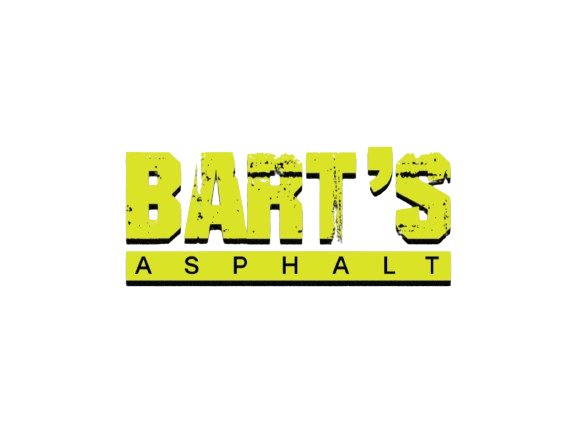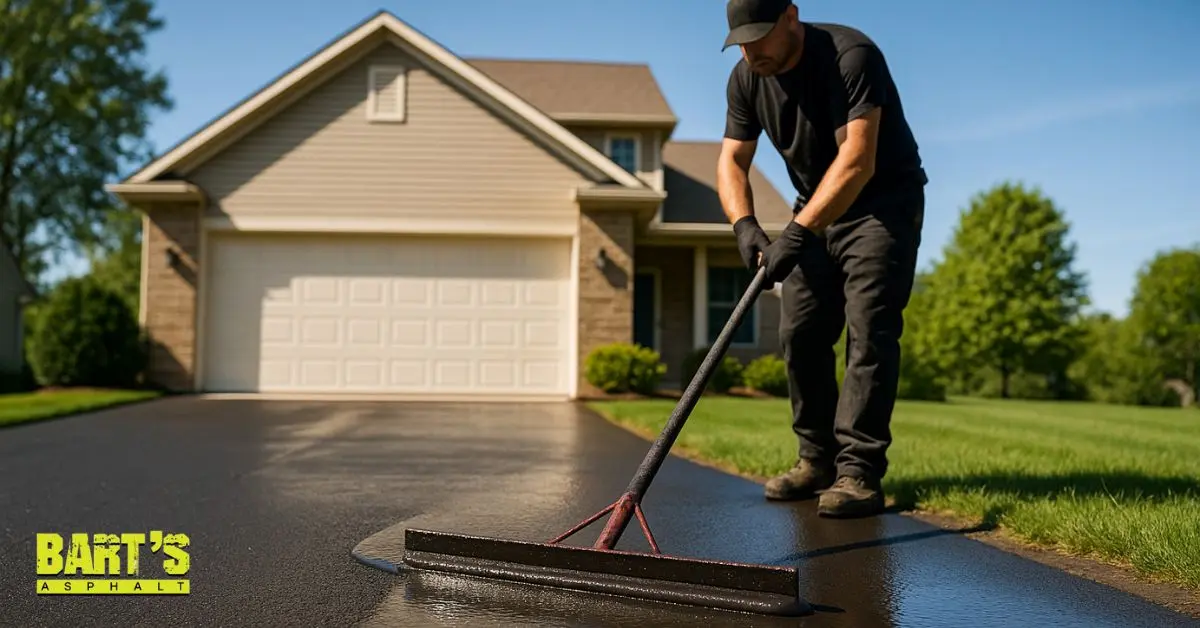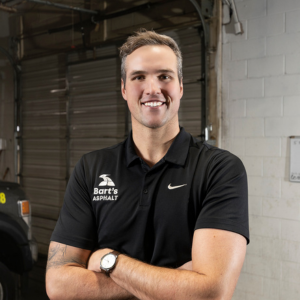If you’ve ever asked yourself, “How much to sealcoat a driveway in Michigan?”
The cost range is between $281 and $862 on average. However, several factors can significantly impact the price, including the types of sealants used for asphalt sealcoating, labor costs per square foot, and other relevant considerations.
This article will expand on these factors to help you make an informed decision before you swipe your card.
Key Takeaways
- In Michigan, driveway sealcoating costs between $281 and $862, averaging $567, influenced by driveway size and condition.
- Choosing the right sealant type is important, with options like asphalt emulsion, coal tar emulsion, and latex acrylic offering various benefits and costs.
- Hiring professionals for sealcoating ensures quality application and durability, while DIY options may save costs but come with potential risks and additional expenses.
How Much To Sealcoat a Driveway in Michigan
![How Much to Sealcoat a Driveway in Michigan [A 2025 Cost Guide] 1 An asphalt driveway in Michigan showing a sealcoating process, illustrating the average cost of driveway sealcoating.](https://images.surferseo.art/79c79752-7276-4936-ab2e-8437f4688690.png)
In Michigan, sealcoating an asphalt driveway typically costs between $281 and $862, averaging around $567.
Costs can start as low as $150 and reach up to $2000 for larger projects because driveway size is a significant factor, as contractors often charge per square foot.
Here’s a quick breakdown of typical costs to help you know what to expect:
![How Much to Sealcoat a Driveway in Michigan [A 2025 Cost Guide] 2 Average Cost of Driveway Sealcoating in Michigan 2kpx](https://www.bartsasphalt.com/wp-content/uploads/2025/09/Average-Cost-of-Driveway-Sealcoating-in-Michigan-2kpx-300x117.png)
Cost by Driveway Size (Average Estimates for Michigan)
For instance, in Detroit, the average price for residential asphalt sealing is about $0.30 to $0.50 per square foot.
Factors Affecting Sealcoating Costs in Michigan
![How Much to Sealcoat a Driveway in Michigan [A 2025 Cost Guide] 4 A visual representation of various factors affecting driveway sealing costs in Michigan.](https://images.surferseo.art/2bdc7837-7db4-4b72-9543-c8a97a86c141.png)
As mentioned earlier, several factors influence the cost of driveway sealing in Michigan. For instance, the condition of your asphalt surface is key because more damage means more prep work and higher expenses. Larger driveways also naturally cost more to seal.
There’s also the weather to consider, because Michigan’s varied climate requires robust sealcoating to withstand extreme temperatures and precipitation. Local weather conditions can dictate the type of sealant needed, affecting overall costs.
Not to mention, hard-to-access driveways or those requiring specialized equipment can also increase labor costs.
The amount of prep work required before sealing is another consideration. Thorough cleaning, often involving power washing, ensures proper sealant adhesion. This can also add to the total cost since Michigan’s freeze-thaw cycles often require more durable and thicker sealant layers, increasing expenses.
Types of Asphalt Sealants and Their Costs
Can sealcoating your driveway prolong its life? Most definitely!
Selecting the proper sealant is vital for both the longevity and appearance of your driveway. In Michigan’s unique climate, the appropriate sealant can make a significant difference.
The types of common sealants include:
Asphalt Emulsion Sealant
Asphalt emulsion sealants are among the more affordable options, costing between $0.08 and $0.10 per square foot. These sealants are known for their water resistance and better color retention compared to coal tar.
The lifespan of an asphalt emulsion sealant is typically around four years or more, making it a cost-effective choice for many people.
However, there are some drawbacks. Asphalt emulsion sealants can be prone to staining from gas and oil.
Despite this, their affordability and effectiveness in water resistance make them a popular choice for many driveways and even a parking lot, especially when using asphalt sealant.
Coal Tar Emulsion Sealant
Coal tar emulsion sealants are another commonly used option, with prices ranging between $0.06 and $0.15 per square foot.
Known for their durability, these sealants offer:
- Excellent protection against gasoline spills,
- Resistance to motor oil,
- Water resistance,
- Protection from UV light.
This makes them particularly suitable for other areas with heavy traffic and frequent exposure to car fluids.
The lifespan of coal tar emulsion sealants generally ranges from two to four years. While they are durable and stain-resistant, it’s essential to consider that coal tar can be more environmentally hazardous compared to other sealant types.
Latex Acrylic Sealant
Latex acrylic sealants are the premium choice, costing between $0.20 and $0.25 per square foot. Some of the benefits they offer are:
- Non-toxic,
- Stain-resistant,
- UV-resistant, making them an eco-friendly option,
- Known for their longevity, often outlasting other types of sealants.
Latex acrylic sealants are particularly recommended for driveways with spiderweb cracks or small holes. However, they are the most expensive option and can be difficult to buy in small quantities.
Despite the higher initial cost, their durability and environmental benefits make them a worthwhile investment for many homeowners, especially when addressing cracking issues.
Professional vs. DIY Sealcoating Costs
Many people often debate whether to tackle sealcoating themselves or hire a professional. If you are a homeowner facing this dilemma, here are some things to consider:
- DIY sealcoating can be cost-effective by eliminating labor fees.
- It requires specialized equipment and skills.
- DIY may incur extra costs, potentially affecting savings.
Hiring professionals such as our team at Bart’s Asphalt ensures:
- Quality work and proper application techniques.
- Warranties that provide extra pavement protection.
- Convenience and time savings for your business, which can outweigh the costs, especially considering potential DIY pitfalls and the right tools.
Our team of professional contractors brings expertise and valuable experience to improve seal longevity and appearance. Although cost estimates can vary, we recommend that you reach out to us to get a FREE quote today.
We’re always happy to help!
DIY vs. Professional Sealcoating: Process and Tips for Michigan
Deciding between tackling sealcoating yourself or going pro? Having a good understanding of the steps involved can steer you right. Plus, Michigan’s climate throws in a few special considerations you won’t want to miss.
The DIY Sealcoating Process
If you decide to roll up your sleeves, here’s what to expect:
- Gather your tools and materials: You’ll need basics like a squeegee, pressure washer, sealant, and crack filler. Expect to spend around $50 to $200 total.
- Prep your driveway carefully: Clean all debris with a broom, power wash to remove dirt and residue, and fill any cracks. Watch out for freeze-thaw damage unique to Michigan, which can leave stubborn residue and cracks that need extra attention.
- Apply the sealant: Start from the top and work your way down, spreading even coats. Michigan winters call for at least two coats to really protect against harsh freezes.
- Let it cure properly: Plan for 24 to 48 hours drying time with no rain and temperatures above 50°F. Sealcoating below 50°F or in high humidity can lead to poor adhesion, meaning you’ll need to redo the job sooner.
Warnings and Tips
Whether you choose DIY, you must avoid common pitfalls like:
- Uneven application or skipping edges.
- Ignoring local weather conditions. Michigan’s humidity and temperature swings matter a lot.
- Rushing drying times can void warranties or cause peeling.
If you follow these steps tailored for Michigan, your sealcoat stands up to the freeze-thaw cycle and protects your driveway year-round.
The Professional Sealcoating Process
When our professional team arrives, here’s what usually happens on-site:
- A thorough inspection and driveway edging.
- Application of multiple sealant coats using commercial tools.
- The job typically wraps up in 1 to 2 days.
- Post-job care advice to help your driveway last longer.
DIY vs professionals? If you can’t make up your mind, you can contact us today and get a FREE quote! Our team at Bart’s Asphalt will give you the clarity you need to make your driveway sealcoating process a breeze!
Optimal Timing for Sealcoating in Michigan
![How Much to Sealcoat a Driveway in Michigan [A 2025 Cost Guide] 5 An illustration showing the optimal timing for sealcoating driveways in Michigan.](https://images.surferseo.art/325b860e-9521-4055-8dd7-933a10a715c9.png)
Timing plays a critical role in effective sealcoating. In Michigan, the best period is from mid-April to late October, especially late spring through fall when temperatures are consistently above 50°F. Optimal temperatures range between 75°F and 90°F.
Scheduling driveway sealcoating during dry weather and moderate temperatures increases adhesion and longevity, reducing future costs. Poor warm weather conditions can cause the sealant to freeze, peel off, or wash away, leading to additional fees for re-application with each coat.
Contractor Selection and Quality Standards
Choosing the right sealcoating contractor is highly important for quality workmanship and lasting results. You should obtain quotes from at least three local contractors to compare costs and services.
Prioritize those with two coats and a strong industry track record, as experience often leads to better service in the sealcoating business. For example, Bart’s Asphalt is the premier asphalt and contractor company in Michigan. For many years, we have supported local businesses and their success.
So, when choosing a contractor, consider the following:
- Check the contractor’s licenses and insurance for legal compliance and coverage against liabilities.
- Consider customer reviews and cost estimates when making your decision.
- Inquire about warranties and their duration for added assurance.
When hiring a sealer, consider asking the following:
- When can they start the project?
- How long will the project take?
- Can they provide testimonials or a portfolio of similar projects to verify credibility?
- Are low bids a concern, as they may indicate lower quality?
- Can the sealer repair any driveway issues, or will separate hiring be needed?
Material Selection for Michigan Conditions
Choosing the right materials is just as crucial for driveway longevity.
Key considerations include:
- Freeze-thaw cycles can worsen cracks.
- Heavy snow and rain require high-quality sealants to protect against water damage.
- Use of eco-friendly sealants like Safe Seal® that comply with Michigan’s regulations and reduce environmental impact.
For optimal curing:
- The sealcoat should not face temperatures below 50 degrees for at least 48 hours post-application.
- Low humidity and clear skies can significantly reduce curing time.
- Evaluating the quality of materials offered by contractors is key, as high-grade sealants are key for effective sealcoating.
Cost Optimization Strategies for Homeowners
Homeowners can optimize sealcoating costs by starting with careful budgeting to estimate the amount of sealcoat needed. Also, purchasing materials in bulk helps lower the cost per unit and cuts down on shipping expenses.
Leveraging modern technology, such as drones and automated equipment, further enhances efficiency by reducing waste during the sealcoating process. Additionally, scheduling the job in late summer or early fall can lead to further cost savings.
Regardless, the best way to optimize for the cost of driveway sealcoating is to speak with us at Bart’s Asphalt. Our team is eager to guide you through the process, offering you the information you need!
Regulatory and Environmental Considerations
Michigan’s environmental laws are tightening, especially regarding stormwater management and the chemicals used in sealcoating. This is unlike coal tar sealants, which pose significant environmental and health risks, being carcinogenic and potentially polluting soil and groundwater.
Eco-friendly alternatives like Safe Seal are effective and don’t release harmful chemicals, making them suitable for colder climates. Proper drainage systems are essential to prevent toxic runoff from sealcoating materials, comply with regulatory requirements, and ensure environmentally friendly practices.
Long-term benefits of sealcoating include extending the lifespan of asphalt and reducing environmental impact from fewer replacements.
Long-term Value and ROI of Sealcoating
![How Much to Sealcoat a Driveway in Michigan [A 2025 Cost Guide] 6 A visual representation of the long-term value and ROI of sealcoating driveways.](https://images.surferseo.art/91bcc592-b30a-4da7-8110-7d0637906556.png)
Routine sealcoating offers substantial long-term benefits. It can increase a home’s resale price, reflecting a significant return on investment. Regular sealcoating helps prevent costly repairs by limiting damage from weather and other environmental factors.
Well-maintained driveways show increased resistance to deterioration, attracting buyers seeking low-maintenance homes.
In the long run, routine asphalt sealcoating can save hundreds or even thousands of dollars in repairing and resurfacing costs for property owners, ultimately helping them manage their money more effectively.
How Much To Sealcoat a Driveway in Michigan: Summary
Sealcoating your driveway is an investment that pays off in the long run. This guide has provided you with the essential information needed to make informed decisions.
Don’t wait until damage becomes severe; start planning your sealcoating project today for a hassle-free and cost-effective solution.
Frequently Asked Questions
Have questions? Bart’s Asphalt is here to help!
What is the average cost to sealcoat a driveway in Michigan?
The average cost to sealcoat a driveway in Michigan is approximately $567, with typical prices ranging from $281 to $862.
What factors affect the cost of driveway sealcoating?
The cost of driveway sealcoating is primarily influenced by the driveway’s size and condition, the local climate, the type of sealant selected, and the extent of necessary preparatory work.
What are the advantages of using a professional sealcoating contractor?
Hiring a professional sealcoating contractor guarantees expertise and reliable warranties, ensuring a superior finish and long-lasting results. This investment in quality workmanship ultimately protects your property and saves you time and effort.
When is the best time for sealcoating in Michigan?
The best time for sealcoating in Michigan is from late spring through fall, when temperatures are consistently above 50°F, ensuring optimal conditions for the sealant to cure effectively.
What are the benefits of routine sealcoating?
Routine sealcoating significantly extends the lifespan of asphalt and enhances curb appeal while preventing costly repairs.



![How Much to Sealcoat a Driveway in Michigan [A 2025 Cost Guide] 3 202509171623vam0t](https://www.bartsasphalt.com/wp-content/uploads/2025/09/202509171623vam0t-300x196.png)
